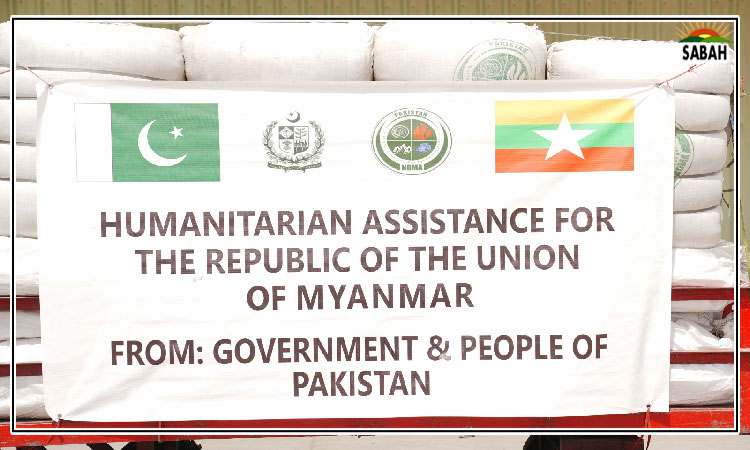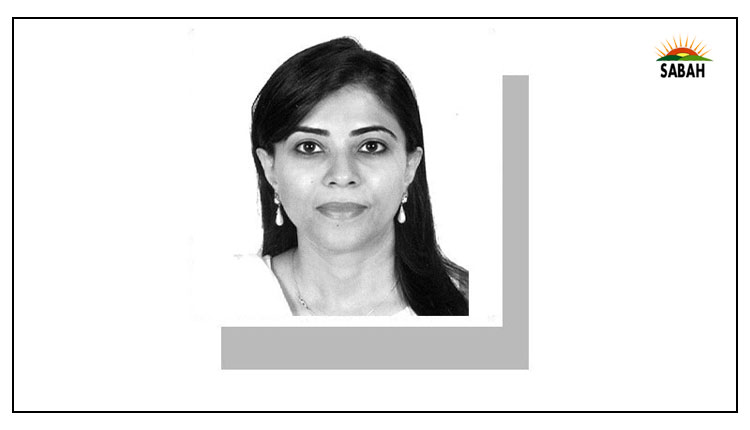Roots of the rage…Arifa Noor
FOR the world, war is another means to conduct politics, but in Pakistan, the law is the only means to conduct politics. After a brief detour via the streets it seems we are back to the courtrooms where every player is jostling against the other.
However, the outcome will be determined by power. The Punjab polls, cases against Imran Khan and the new legal battles to deal with those who went on a rampage will all play out in the courts.
But even in the midst of these battles where the final outcome is far from clear, all I have to offer are a few musings on the skirmishes so far.
Shape of change to come: The status quo, as it has played out for over a decade, is becoming harder to sustain. This does not mean we are headed towards a major turning point. While there are sceptics who think little will change, others are certain everything is about to collapse.
Both may be off the mark. Chances are there will be some kind of a reset where change and continuity will go hand in hand. One hopes this change allows for some shift in the balance of power which is tilted heavily towards the establishment at the moment (or has done so especially since 2008). But this will signal a recalibration rather than the end of the infamous civil-military fault line which shapes Pakistani politics.
At the same time, change is not necessarily linear. The empire can strike back and try to prolong the status quo. Its present instability is due to this and sustaining the status quo for long will prove difficult.
Divisions within: Why is this status quo under threat? Demography, the economy, international changes have all played a role, as has over a decade of multiple television channel discussions about the importance of democracy and elections. This has led to a split within the larger establishment however one may want to describe it.
The earlier consensus of the privileged seems to be breaking down. This larger establishment can be said to be Punjabi-dominated or one in which traditional players such as the military, judiciary and the elite were willing to collaborate; the judiciarys aversion to providing cover to a delay in elections is a case in point, as is the reluctance of most commentators to call for martial law which was acceptable in the 1990s.
Another factor adding to the breakdown of the earlier consensus is because a core constituency, which provided legitimacy to the military and its political role, has shifted its support to the PTI hence the growing criticism of the former in the past one year.
Undoubtedly, there are moments when this does appear to be a fight for Punjab; a fight which began with Nawaz Sharif and is now being led by Imran Khan. And while sceptics pooh-pooh it for this very reason, commentators such as Umair Javed argue this can have broader implications.
Yet, all the factors mentioned earlier would not have been so impactful or so significant had it not been for the growing economic crisis. After all, one reason for the primacy of the military establishment has been its ability to negotiate with the rest of the world and ensure generous cash lines. But if these easy funds are no longer available and the establishment is increasingly being seen as a leading factor contributing to the instability, rather than stability, the fissures might grow.
Without the dollars to distribute, there is less space to keep big business in the establishments corner; for the money from abroad has usually been used to pay for subsidies and profit-making, compensating for the lack of policy continuity.
Struggle to survive: However, it would be unfair to simply focus on the people and groups at the top. This is not just about them. That the ordinary people have had enough is evident. And this is linked less to Imran Khan than it is to the economic situation; in fact, their anger has turned Khan into the popular force he is rather than him having galvanised the people.
The vandalism and violence on the streets in recent days is also a result of this. The outrage and horror aside, citizens attacks on symbols of the state is a serious indication of the latters legitimacy crisis and should be of concern to those in privileged positions. To simply see this as the work of one partys planning would be to miss the woods for the trees.
There is a message for all of us in the videos of ordinary people stealing food items from Jinnah House in Lahore. In one short scene, a young man is putting a pack of ketchup in his backpack and calling it maal-i-ghaneemat.
Not a peacock or golf sets or even strawberries, an exotic fruit by Pakistani standards. But just locally manufactured ketchup. In another, someone is holding up a handful of frozen falsas.
Both the ketchup and the frozen falsas should shake us allmore than the violence. For we should be asking how such ordinary kitchen items became worth stealing, or come to symbolise elite excess for those left behind in the economic mismanagement.
Even the anger against the military is driven to an extent by economic hardship. This anger predates 2022 although it intensified considerably in the past year as the popular swing in favour of the PML-N after 2018 was also due to the chatter about how their meddling had led to inflation.
With the change of government, party positions too have changed but one target of public anger remains the same. The violence of the past few days needs to be seen in this context as well.
If we have to condemn the vandalism against state symbols, we should do so with some introspection. The suffering and anger of the people is our collective failure.
Courtesy Dawn












